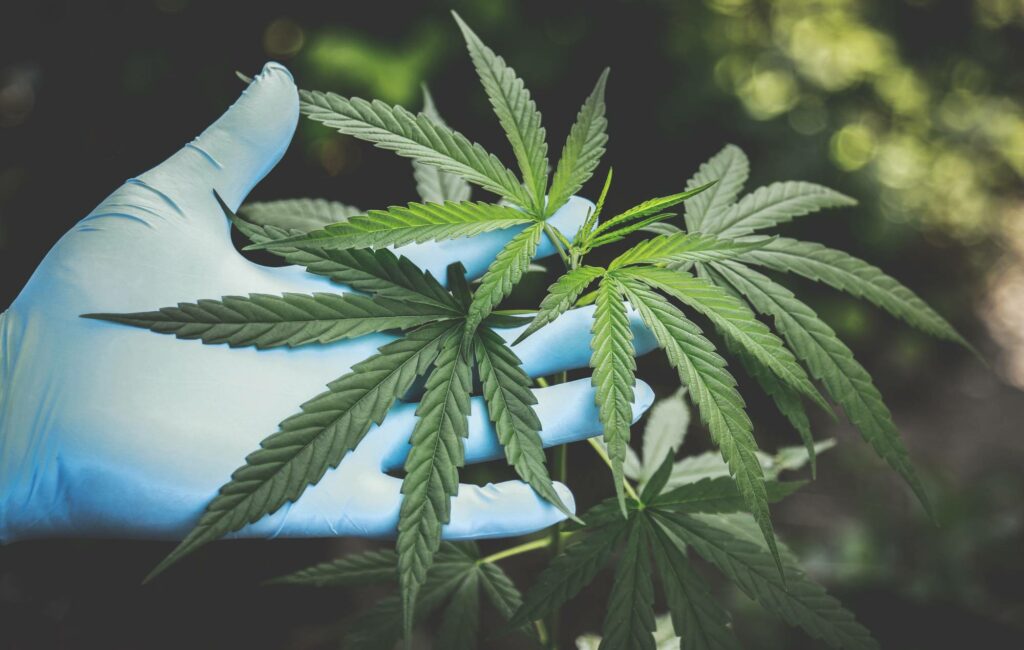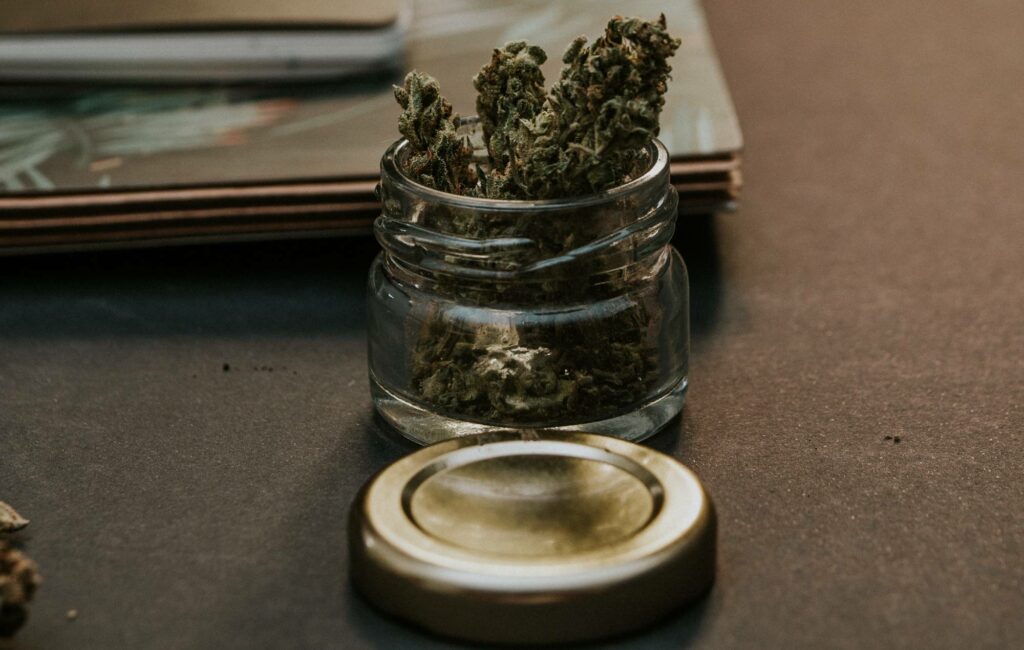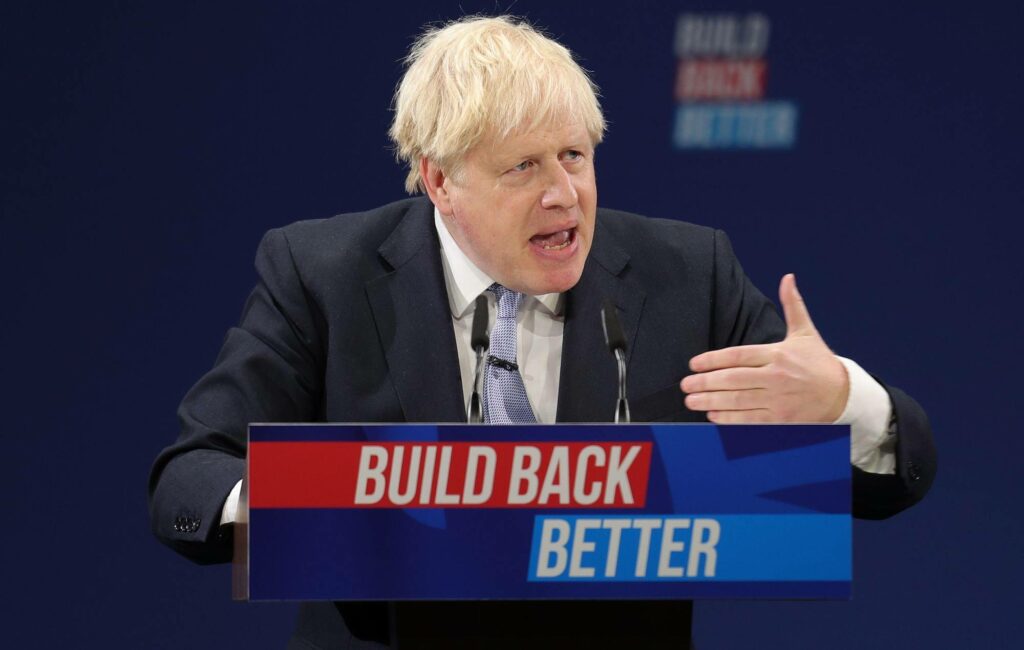Can the UK turn over a new leaf on cannabis?
As the legislation of cannabis continues to move towards wider decriminalisation in the US and Europe, Dario Sabaghi examines the obstacles it faces in the UK

Cannabis has been undergoing a process of normalisation in recent times. Last year, the United Nations recognised its potential medical value and removed it from Schedule IV of the 1961 Single Convention on Narcotic Drugs, where it had been listed alongside heroin. In America, 19 states have legalised it for recreational use, as its emerging markets generate billions. And across the border, in 2018, Canada became the first G7 and G20 nation to legalise cannabis for both recreational and medicinal use.
However, in the UK, cannabis is still illegal. Although widely consumed, decriminalisation or legalisation have not made their way onto the political agenda.
Ever since the United States began its war on drugs in the 1970s, the UK has followed suit with a strict drugs policy to contain consumption and the criminal activities associated with it. However, that war has seen defeat not only in the UK but worldwide.
Cannabis was first made illegal in the UK in 1928. Successive drug regulation led to the Misuse of Drugs Act, introduced in 1971. At first, cannabis was classified as a class B drug; then, in 2004, it was reclassified to class C, only to revert to class B status five years later. In 2018, the UK government legalised medical cannabis, although this has yet to be rolled out efficiently.
As 2021 marks the 50th anniversary of the Misuse of Drugs Act, experts, politicians, and organisations are wondering whether the current drug policy is fulfilling its goal to eradicate drugs from society and combat organised crime, or if it is time for reform.
Public opinion in the UK seems to favour a change in the law to either decriminalise or legalise cannabis. The former would see the removal of criminal penalties concerning personal use, while legalising the substance would see it comprehensively regulated in a similar way to alcohol. In a recent YouGov poll, 52 per cent supported the legalisation route. However, the political landscape seems averse to both pathways.
All the while, the current policy makes criminals of around 2.5 million people who are believed to consume cannabis in the UK — although this number is likely to be higher. For possession of cannabis, people can get up to five years in prison, an unlimited fine, or both; and up to 14 years in prison for producing and selling it.
Amber Moore, senior researcher and policy advisor for the Conservative Drug Policy Reform Group, says it is time for change. “Criminal records for low-level drug offences should be removed,” she says. “People not only find themselves prohibited from international travel to certain jurisdictions, but the disclosure of the criminal record is enough to put many off from applying for positions which require a standard background check, causing significant anxiety, contributing to poor mental health, and barring these otherwise employable individuals from participating in society most positively.”
The law means that people are criminalised for using a substance that causes less trouble than alcohol or hard drugs.

Up until a month ago, ‘Tony’, whose name has been changed, smoked cannabis for medical purposes as he suffers from ADHD, which also causes him to suffer from insomnia. He gave it up, he told Rolling Stone, because he was worried about prosecution and its consequences.
“I fear prosecution because even though it’s for a medical issue you may encounter that one police officer that doesn’t see that way. I am also worried how it can tarnish your criminal record over a tiny bit of puff, as it happened to my mates,” he says, adding that he can’t afford to get legal medical cannabis as it costs around £390 per month and he is currently unemployed.
“We need to decriminalise this healthy drug,” continues Tony. “The benefits far outweigh the negatives. They often say cannabis hasn’t been tested enough. Well, if using marijuana for over 5,000 years as a civilisation isn’t enough testing, then I don’t know what is.”
As well as not resolving drug-related issues, prohibition feeds into other problems in our society. Although the use of stop-and-search policing for low-level drug offences has fallen sharply, it has become disproportionately targeted towards ethnic minorities.
“As the UK drugs policy follows the US experience in many aspects, drug policing targets the Black community and other ethnic minorities, although Government statistics show that the Black population use drugs at a lower rate [compared to] the white population,” says Niamh Eastwood, executive director of Release, an organisation advocating the decriminalisation of all substances.
According to Release’s figures, in 2016/2017, Black people were stopped and searched at 8.4 times the rate of white people, while Asians and those in a ‘mixed’ group were stopped and searched at more than twice the rate of white people.
In November 2019, the founder of the Black Cyclists Network, Mani Arthur, was cycling with two friends in London when three police officers stopped him, claiming a minor cycling contravention, before accusing him of smelling of cannabis and demanding he submit to a stop and search by the side of the road in a public space.
During the search, one officer forced Arthur to remove his shoes. However, they found nothing on him. The operation was recorded on a phone and Arthur shared the degrading experience on his Instagram account. The video spread across social media and made headline news.
Mark, a successful DJ and radio presenter from Peckham, south London, shares his experience.
“Growing up in London as a young Black man, I’ve been stopped by police for cannabis both when I have and haven’t been in possession,” he says.
“Luckily, I’m not a dealer, so on the occasions that I did have some, I’ve never had more than a joint’s worth. Over the years, I’ve been banned from Soho for a year, arrested and cautioned once — even though I threw it away — and the last time, [I was] sent to drug counselling for a month, which, in my opinion, was just a waste of taxpayers’ money, as I’m still smoking eight years later.
“Each time, I’ve been made to feel like I’ve committed the worst act of crime for doing something that has never made me go on to commit any more actual serious crimes, apart from being Black, in the eyes of the law,” he says.
“The problem is, throughout the cities and the country, young Black men are targeted by the police and have to deal with experiences like mine, but usually with much more severe outcomes, which lead to disastrous knock-on effects on their lives when disrupted for a relatively minor offence,” continues Mark. “It’s time the UK decriminalise cannabis — and decriminalise young Black men, too, while they’re at it.”
Drug penalties are not equal
When they do find someone in possession of cannabis, the police have a wide range of punishment options to choose from. When someone is caught with drugs for personal use, law enforcement may give a warning, divert the person to drug educational programmes, or prosecute. But, according to Eastwood, “Police are trying to impose harsher responses on people of colour than they are on white people, who are much more likely to benefit from these kinds of court disposals.”
Drug diversion schemes are police-led programmes aimed at diverting people caught committing minor offences — such as the possession of illegal drugs for personal use — away from the criminal justice system, to other measures instead.
Steve Rolles, a senior policy analyst for Transform Drug Policy Foundation, told Rolling Stone: “The drugs diversion programme is indistinguishable from decriminalisation, such as in Portugal. It is a de facto decriminalisation while the UK still criminalises drugs.”
Dr Mark Monaghan, a reader in Criminology and Social Policy at the University of Birmingham, agrees that the prevailing practice of criminalising cannabis needs to change. “Prohibition and criminalisation generate harm; the policy can be more harmful than the substances themselves. It also represents a social problem,” he adds, before stating that he doesn’t think decriminalisation will happen any time soon.
An independent review of drugs led by Dame Carol Black and commissioned by the UK Government reported earlier this year that the illicit drug trade market in the UK is estimated to be worth £9.4bn a year, with the total cost of drugs to society believed to be more than £19bn. Black’s review supports Rolles’ view that the drug problem should be approached from the perspective of a public health issue rather than being framed only as a criminal activity.
A mixed picture
As far as political opinion on the issue goes, the picture varies across the UK.
Scotland is experiencing a drug overdose crisis. Last year, 1,339 people died, the highest per capita rate in all of Europe. The Scottish National Party formally backs decriminalisation, repeatedly calling for drugs control to be devolved to the Scottish Parliament.
In Wales, Plaid Cymru, the nationalist and social democratic party that advocates Welsh independence from the UK, has also called for the decriminalisation of drugs, arguing for them to be treated as a health issue, with health being a devolved matter, unlike criminal justice.
Elsewhere on the political landscape, the Liberal Democrats and the Green Party are the only two parties that aim to regulate cannabis in the UK.
However, cannabis decriminalisation remains firmly off the political agenda in Westminster. A Home Office spokesperson told Rolling Stone that the Government has no plans to decriminalise drug possession: “Our approach to drugs remains clear — we must prevent drug use in our communities, support people through treatment and recovery, and tackle the supply of illegal drugs.”
Recently, Prime Minister Boris Johnson and the Labour Mayor of London Sadiq Khan clashed over the issue, with Johnson criticising and condemning Khan’s plans to launch a review examining the benefits of decriminalising cannabis in the UK capital. The Prime Minister reaffirmed that drug policy is a matter for UK government and that he has no intention of legalising cannabis.
A spokesperson for the Mayor of London told Rolling Stone: “The Mayor recognises there is a growing demand for a debate on our drug laws, and he has committed to establishing a London Drug Commission of independent experts who will examine the latest evidence from around the world, with particular focus on cannabis.” They added that the initiative is focused on protecting Londoners’ health and reducing the huge damage caused by the illegal market.

Yet Labour party leader Keir Starmer is officially against a relaxation of drug laws and decriminalising cannabis, although he is “open to a grown-up debate”, and has highlighted an interest in drug diversion schemes.
Ant Lehane, campaign secretariat for the Labour Campaign for Drug Policy, told Rolling Stone that Starmer is adamant on that point, and the Labour leader didn’t want to be held to an issue in which the Conservatives can take political advantage.
“Because cannabis reform is pinned to the left-wing middle class, Labour is trying to move away from that image, and try to win back some votes of the traditional working-class area in the North. They also fear being attacked by right-wing media if they come out in favour of decriminalisation or possession. I think the party could move from that position, but given how bad the last election was, cannabis policy doesn’t seem [to be] on the top of the agenda of the Labour leader,” he said.
Although decriminalisation is not the top priority of the current government, several MPs think that a reform of the current drugs policy is needed, with views having evolved noticeably compared to ten years ago, when only a few MPs supported drug policy reform, says Peter Reynolds, president of cannabis policy group CLEAR. “Now there are much more MPs that support drug policy reform. It is a huge change, but it doesn’t reflect the attitude of political leaders. This is where the problem lies,” he says.
Conservative MP Dr Kieran Mullan disagrees. “I don’t think decriminalisation will be supported by most MPs and it won’t be supported by the current Government,” he told Rolling Stone. “The people who want decriminalisation need to prove that it won’t be overall worse for public health than the current regime. They are very good at picking bits of evidence suggesting things might mean something, but actually, you can’t compare countries effectively.”
The term ‘decriminalisation’ is the breakpoint of the public debate on cannabis. Although drug diversion schemes are politically accepted by Labour and the Conservatives, decriminalisation is viewed as a double-edged sword.
But even among the medical establishment, decriminalisation generates confusing positions. Although the Royal College of Physicians and the Royal Society for Public Health have expressed support for the decriminalisation of cannabis and other drugs, other medical royal colleges and the BMA have no official position. However, most institutions agree that the debate should focus more on public health and harm reduction than on a strategy based on law enforcement.
Experts think the position on decriminalisation may change if pushed by external factors. Should the United States legalise cannabis at the federal level, European countries may follow. US regulations on cannabis at state level have become case studies for those investigating the implications of decriminalising or even legalising cannabis in the UK.
Last year, US cannabis sales hit a record $17.5 billion (£12.7 billion), collectively generating nearly $8 billion (£5.8 billion) in tax revenue. Furthermore, states where cannabis is legal have enacted plans to expunge cannabis-related criminal records and introduce support programmes for communities hit by the war on drugs.
In Europe, the situation varies. Portugal was one of the first countries to decriminalise drugs for personal use. In the Netherlands, cannabis is still illegal but decriminalised and tolerated for personal use, and available in coffee shops. Spain has decriminalised cannabis for cultivation and personal use and allowed the establishment of cannabis clubs, in which people consume cannabis legally. In recent years, most European countries are developing proposals and experimental projects to ease their drugs policy or legalise cannabis, including France, Switzerland, Belgium and Luxembourg.
Another factor for change in the UK is the value of the cannabis market and the potential tax revenue that may tempt the government to consider regulating it.
But it is not just about money. Legalisation also focuses on reducing harm to people in terms of social justice and easing the weight of law enforcement and the criminal justice system.
But for Dr Mullan MP, legalisation won’t stop people from using cannabis, either, and it may worsen the public health situation with more cases related to mental health. Furthermore, legalisation won’t immediately solve the problems related to organised crime. “It is not a war on drugs,” he says. “It is a war on criminal gangs. If you remove drugs from them, there will always be people in society who see a way to make money out of the rules.”
Among the UK public, there is increasing appetite for legalisation, although more research on the most advantageous model is needed, according to Moore. “Through an independent evaluation of the international situation, the UK government would be prepared to analyse if this move may produce a better effect on public health than the current status quo based on a proper assessment underpinned by evidence rather than moral fervour, which characterised drug policy decision-making in the UK,” she says.
Associate Professor in Law at the University of Leicester Dr Melissa Bone analyses the war on drugs and prohibition from a human rights-based perspective. She believes that drug prohibition is ineffective at reducing use, and may lead to human rights abuses related to disproportionality of sanctions, and social and racial injustice. However, human rights arguments can be difficult to deploy in the UK context, according to Dr Bone. “When people have argued that our prohibitive drug laws infringe their human rights to consume certain substances, judges in the UK have tended to superficially engage in such arguments and have deferred such conflicts to Parliament,” she says.
For now, political leadership treats decriminalisation as too radical a topic to include in any political manifesto.
